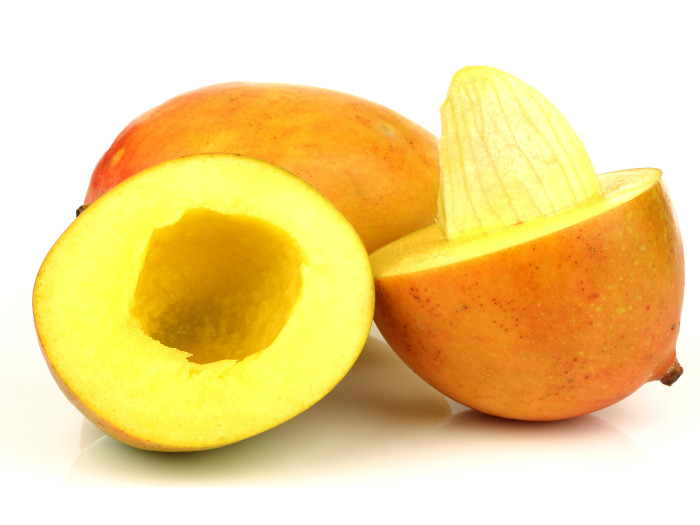Eating mango seed is not the most common way to boost your overall health, but it can provide quite a few benefits when consumed regularly.
What is Mango Seed?
While many people understand the value of the mango fruit, borne on a tree scientifically known as Mangifera indica, few people recognize the value of the seed within it. In fact, it is often discarded and ignored, while it could be used for a variety of medicinal purposes. One of the largest single seeds in any fruit, this flat, creamy-white seed in the center of a mango possesses a dense supply of nutrients and antioxidants. Once these seeds are completely cleaned off and dried, they are then ground up into a powder. This can be made into various pastes and butter for topical use. [1]
The seed itself is edible, but typically only in unripe mangos. Once a mango has fully ripened, the seed will harden and can only be used in a powdered form. In an unripe mango, you can eat the seed directly, as a more concentrated way to enjoy the seed’s many beneficial properties. In terms of active ingredients, mango seed possesses a number of bioactive, phenolic, and antioxidant compounds, as well as unsaturated fatty acids. [2]
Mango Seed Benefits
The most impressive benefits of mango seeds include their ability to treat dandruff, improve the appearance of skin & hair, soothe digestion, prevent diabetic symptoms, and aid in weight loss, among many others.

Don’t let that mango seed go to waste. Photo Credit: Shutterstock
Skin Care
With its density of antioxidants and volatile compounds, mango seed is able to help improve the appearance of the skin, reducing signs of inflammation, such as acne, particularly when the powdered form is topically applied to the affected area. It can also help reduce the appearance of wrinkles and age spots. [3]
Hair Care & Dandruff
By making a hair mask with powdered mango seed and water, you can strengthen your hair follicles, particularly when you rub the paste into your scalp. This can also eliminate inflammatory conditions, such as dandruff.
Diabetes
As per a study published in the journal Nutrition and Metabolic Insights in 2014, regular supplementation with mango seed extract results in more blood sugar control, which is good for people with diabetes or those at risk for developing this condition. [4]
Inflammation
From your digestive system and chronic disease to hemorrhoids and symptoms of gout, the anti-inflammatory properties of mango seed are well known, both traditionally and in modern times, and can provide a wide range of benefits. [5]
Cardiovascular Issues
Research has proven that extracts from mango seed are able to lower overall cholesterol levels, while also stimulating the metabolism and promoting weight loss, all of which can improve overall cardiovascular health. [6]
How to Eat Mango Seed?
Eating the seed of any fruit seems strange to many people, but with a richly nutritious seed like mango seed, it would be foolish not to eat them from time to time, provided you follow these simple steps.
- Step 1 – Find an unripe mango, which should be green in color, rather than orange or red.
- Step 2 – The flesh of this fruit may not be fully sweetened, so remove the seed with a spoon or knife.
- Step 3 – Wash off or suck off the remaining flesh around the central seed.
- Step 4 – Using a sharp knife, you can easily slice through the soft, white seed.
- Step 5 – Consume the seed raw.
